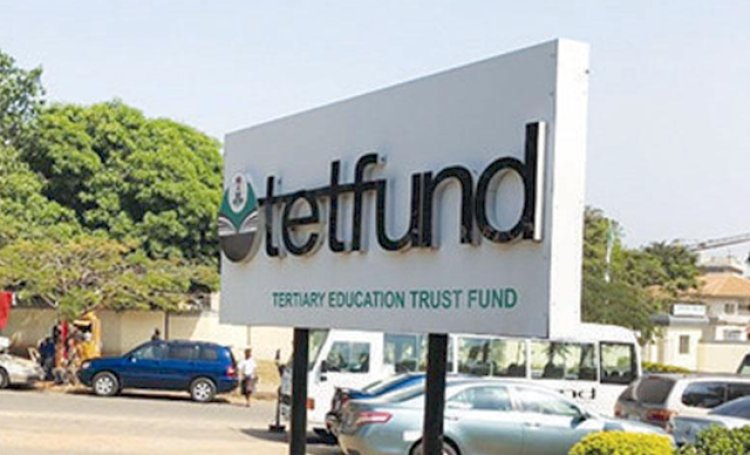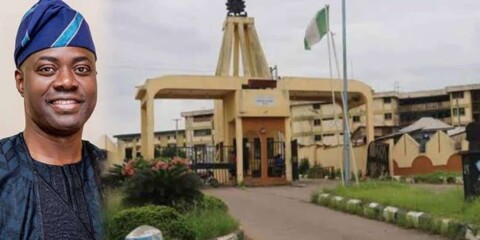The Tertiary Education Trust Fund (TETFund) has reaffirmed the Federal Government’s commitment to addressing the persistent energy challenges in Nigerian tertiary institutions, announcing a N70 billion allocation in the 2025 budget for the deployment of sustainable mini-grid solutions on selected campuses.
The announcement was made by TETFund Board of Trustees Chairman, Aminu Bello Masari, at the Lagos edition of the 2025 National Town Hall Meeting held at Radisson Blu Hotel. Masari described the allocation as a bold step towards tackling chronic energy deficits in universities, polytechnics, and colleges of education across the country.
Masari highlighted that TETFund is leading efforts to prepare Nigeria’s tertiary institutions for a digital and knowledge-driven future, focusing on modernising administrative processes, enhancing learning, and supporting innovation. He explained that the Fund’s TETFund Education Resource and Administration System (TERAS) is designed to streamline administration, improve accountability, monitor projects efficiently, and facilitate e-learning.
“These investments promote transparency, enhance operational efficiency, and expand digital literacy across campuses—critical for preparing students for the modern knowledge economy,” Masari said.
He further emphasized that TETFund’s mandate goes beyond building infrastructure to holistic transformation of academic standards, research capacity, and institutional resilience. “TETFund is not just about erecting physical structures. It is about building globally competitive institutions driven by innovation, knowledge, and human capital,” he added.
Masari highlighted significant progress in academic staff development, noting that thousands of lecturers have benefited from TETFund-sponsored Master’s and PhD programmes both locally and abroad, in addition to support for conferences, manuscript development, teaching practice, and professional certification.
On research and innovation, he cited major initiatives supported by the Fund, including the TETFund Alliance for Innovative Research (TETFAIR), which has produced over 200 prototypes now moving toward commercialisation, and the Research for Impact (R4i) programme, which has trained 939 researchers to turn ideas into market-ready products. He added that Multidisciplinary Research Laboratories and Centres of Excellence have been established across the country, while the Nigerian Education Data Initiative (NEDI) enables real-time, evidence-based policy planning.
TETFund is also expanding its innovation footprint through advanced Entrepreneurship and Technology Hubs, featuring robotics, 3D printing, renewable energy labs, biotechnology centres, and creative industry workshops. Masari revealed that 18 institutions benefited in 2024, with 15 more added in the 2025 cycle.
In the area of medical education, TETFund has upgraded 18 Colleges of Medicine and is establishing eight medical simulation centres nationwide.
On the Fund’s financial accountability, Masari explained that 91% of TETFund revenue is allocated directly to interventions, covering annual disbursements, special projects, zonal interventions, and disaster recovery. He also outlined the strict eligibility criteria for institutions, stating that only public universities, polytechnics, and colleges of education with valid regulatory recognition may benefit.
Masari called for shared responsibility in sustaining TETFund projects, urging institutions, communities, alumni, and industry players to prioritise maintenance and effective utilisation.
Also speaking at the event, TETFund Executive Secretary Arc Sonny Echono highlighted the importance of knowledge and skills in driving competitiveness, surpassing the role of natural resources, and called for greater investment in education to unlock national potential.
Jean Monnet Professor of Strategy and Development, Anthony Kila, from the Commonwealth Institute for Advanced and Professional Studies, urged that TETFund evolve from an infrastructure-focused agency into a strategic engine for knowledge, innovation, and national competitiveness. Speaking on “Tertiary Education in Nigeria and the Relevance of TETFund,” Kila described Nigeria’s higher education system as one that has endured “heat, cracks, and shocks,” presenting an opportunity for reconstruction and reform.





